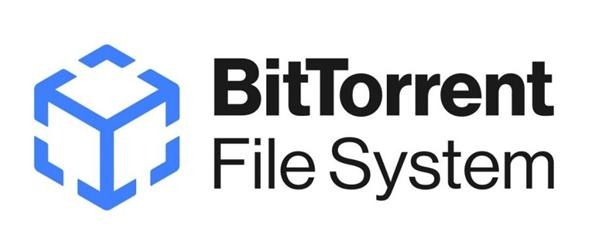The cloud storage industry is growing at an explosive rate as demand for low-cost data storage solutions is rising.
As per data from Allied Market Research, the cloud storage industry was valued at $46.1 billion in 2019 and is projected to grow by 21.9% a year until 2027. This forecast is based on the expected surge in demand for cloud storage as more individuals and firms look to the cloud to solve their data storage needs and help manage unstructured data.
However, a recently released blockchain platform may be poised to throw a spanner into the works, by providing an arguably superior solution at a much lower cost.
What Is the BitTorrent File System (BTFS)?
The BitTorrent File System (BTFS) is a blockchain-based network that supports the storage and sharing of digital content through a content-addressable decentralized file system.
The BTFS protocol is built on a robust architecture enabled by the integration of various breakthrough technological innovations. Its core structure is a variant of the open-source Interplanetary File System (IPFS) protocol, which was hailed as a ground-breaking invention for decentralized file storage. BTFS network combines the TRON Network, TronGrid service, the BitTorrent network and the BitTorrent token (BTT) to create a file storage solution that anybody can help grow.
The BTFS network forms the base layer of a next-generation decentralized storage system that allows anybody to securely store their files in a decentralized, redundant manner, or contribute storage to help the network grow and earn rewards. The TRON network, on the other hand, provides a platform for creating blockchain-based applications that can leverage this storage platform, whereas the BitTorrent network makes the technology available to well over 100 million BitTorrent users spread out across the globe. It also adds to the system’s functionality through its wide array of client-facing products.
Finally, TronGrid serves as the gateway that integrates these components into a single BTFS ecosystem whereas the BTT token powers the BTFS incentive mechanism, as users earn regular BTT rewards for contributing their excess storage to the network.
Why BTFS is Poised to Displace Cloud Storage
BTFS is in the process of disrupting the cloud storage sector and may be poised to transform how individuals and businesses handle data.
It tackles many of the main issues with popular cloud storage services of today, including the centralization of trust, lock-in effect and low fault tolerance. Since these platforms rely on centralized servers, they can be easily censored or rendered unavailable, while users were unable to easily transfer their files to more resilient systems—until now.
In addition to being expensive, traditional cloud storage services such as Google Drive and Microsoft OneDrive can be easily breached, leading to data loss or privacy concerns, while the firms that operate them can be shut down at any time by the parent firm or government—particularly in countries prone to government censorship.
Thoughts on @BitTorrent a.k.a #BTT
— Justin Sun🌞 (@justinsuntron) October 13, 2020
(1/11) @BitTorrent is arguably the most disruptive tech in the brief history of data itself and changed the internet since its start. It’s fitting that for so long, the face of #P2P technology, #BTT, has been unapologetically peerless.
As TRON CEO Justin Sun explains in a recent tweetstorm, BTFS provides solutions for all these issues and goes a step further by making the platform more inclusive and rewarding for its users, making "#BTT the #BTC of decentralized storage." BTFS provides a basic service where the renters that consume network storage pay a small fee using BTT, while hosts that provide their storage space get rewarded in BTT. As it stands, rental costs are 23 BTT/GB/month, or roughly $10/month for 1TB of uncensorable, redundant storage. This is far cheaper than other redundant file storage options, and ~6x cheaper than that offered by IPFS.
Moreover, BTFS provides impressive data and privacy security through cryptography — a core feature of the underlying blockchain technology. As such, data stored on BTFS is kept private at all times (even to data hosts) and remains censorship-resistant. Due to the decentralized nature of the system, organizations can be sure their files will be available 24/7, with practically zero chance of a blackout or shutdown.
How TRON is Using BTFS
The TRON Network is already using BTFS to optimize its operations, and TRON nodes can now use BTFS to sync the TRON blockchain.
BTFS now serves as the storage solution for all TRON network nodes thus making them more efficient due to faster syncing, while enabling new nodes to launch in significantly less time. Normally, syncing a new mainnet node could take days or potentially weeks depending on the availability of other TRON nodes, but this now takes just hours in most cases. The integration also enables content creators to host and share their content more easily on the TRON network through the BTFS ecosystem.
#DLive officially integrates with #btfs, co-building the next-generation decentralized storage.
— DLive (@OfficialDLive) July 16, 2020
BTFS storage space mining competition is ongoing, sharing 30 million $BTT per day.
BTFS website: https://t.co/Vvve8SWzzh pic.twitter.com/EY8rB8XTjb
BTFS is actively looking to integrate other projects into their ecosystem. DLive, a popular blockchain-based content sharing platform, was the first of many to join the BTFS ecosystem. They announced back in December 2019 that they would begin their migration to the TRON blockchain to enable easy integration with BTFS. The merger completed successfully in July and DLive currently uses BTFS as its data storage solution.
Right now, BTFS has around 300,000 actively monthly users, include 20,000 storage hosts, and is currently accessible to well over 1,000 TRON full nodes and 27 Super Representative nodes — all this, despite going to mainnet just months ago.


